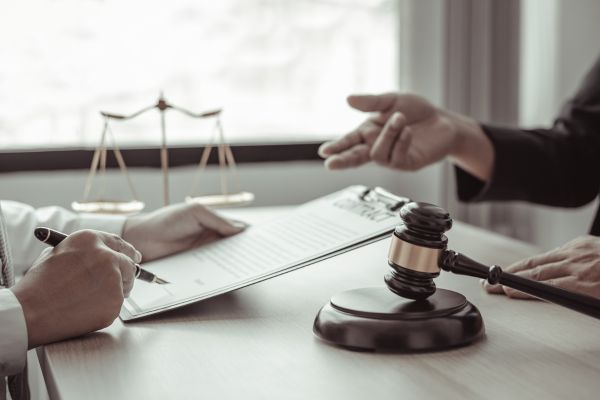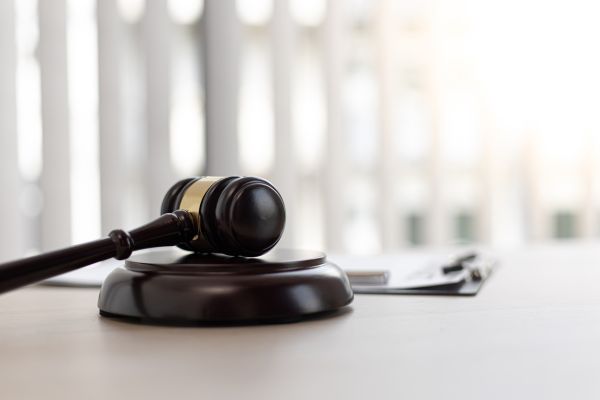Abstract
Have you ever considered whether utilizing your favorite song in a social media post could result in legal ramifications?The modern popularity of TikTok alongside Instagram Reels and YouTube Shorts requires music to be the central element in producing compelling content. Using copyrighted music on your content without permission from the copyright owner will lead to legal risks such as notification take-downs and platform account deactivation and even legal proceedings along with substantial financial penalties. Music labels utilize automated systems to detect copyright breaches on platforms and then execute actions that produce content strikes that lead to account termination. In recent cases, such as Sony Music Entertainment v. OFRA Cosmetics and the National Music Publishers Association v.X Corp the legal challenges that businesses and content creators face are getting continuously worse asdemonstrated. This blog examines social media music copyright regulations while discussing the latest lawsuits involving music rights ownership alongside the significance of musical licensing policies.
Keywords: Copyright Infringement, Social-Media, Music Licensing, Legal risk, Content Creators
Introduction
Music operates as a fundamental element for improving social media outputs and increasing viewer interaction in contemporary digital media environments. Parallel to the recognized viral trends and hit soundtracks there exists a sophisticated legal structure that numerous content creators have not noticed. Copyright infringement of music content leads to the removal of violating content and account suspension as well as demonetization of the material along with potential legal consequences from record companies and copyright owners. The music industry actively enforces intellectual property rights so that all violations including those that are accidental produce serious consequences for users.[1]
Understanding Copyright In Music
Copyright regulations creators maintain full authority to control their original works like music compositions and recorded sounds. These rights encompass reproduction, distribution, public performance, and the creation of derivative works. The unauthorized incorporation of copyrighted music into social media content leads to copyright infringement when done without permission.
Legal Implications Of Using Copyrighted Music On Social Media
Social media users who use copyrighted music without permission will encounter multiple legal problems because of this action.
- Copyright Infringement: Users who broadcast copyrighted music on their platforms without the required legal authorization breach the fundamental rights of the copyright holders. The infringement leads to possible legal consequences with potential lawsuits that seek monetary damage judgments. [2]
- Platform Enforcement Actions: Rising above copyright violations on social media triggers various responses from platforms that consist of both content removal and account stability enforcement as well as strike accumulation against users across their profiles.
- Financial Penalties: Each act of infringement can lead to damages determined by court standards. Significant monetary compensation requests are currently under litigation due to unapproved musical usage in social media content.[3]
Recent Legal Cases Highlighting Risks
Sony Music Entertainment v. OFRA Cosmetics (2023):
Sony took legal action against cosmetic company OFRA Cosmetics which had illegally utilized unlicensed songs within more than 300 video clips on their social media platform. OFRA failed to heed warning signals about their infringing practices so legal proceedings against them started. The subject matter demonstrates how essential it is to license musical compositions used for promotional content material properly. [4]
National Music Publishers Association v. X Corp (2023):
The NMPA pursued legal action against X Corp which used to operate as Twitter for infringing almost 2,000 songs from artists including Taylor Swift and Beyoncé. The lawsuit disclosed how social media platforms need to acquire valid licenses whenever users post music content.[5]
Sony Music Entertainment v. Gymshark Ltd. (2021):
Sony Music sent legal accusations to Gymshark because they used 297 musical works without permission in their advertisement materials and influencer promotions. The legal situation shows that brands exposing their marketing to music without appropriate permission face serious risks.[6]
Guidelines For Legal Music Usage On Social Media
Content creators should adopt these guidelines to lower their legal exposure.
- Owners should acquire authorized licenses for synchronization and master usage before employing music in their content. Legal safety is guaranteed through these standards because they protect creator rights and comply with regulations.
- Utilize Platform-Specific Music Libraries: Multiple online solutions provide their users with music libraries from approved sources. Workers must examine platform-specific conditions that differ between platforms before implementing music usage.
- You should either use music that carries free rights usage or it should exist within the public domain.
- Music without copyright restrictions should be your choice since it minimizes the risks of copyright violations.
- Consult legal experts for guidance when dealing with complicated license contracts because they will help you follow copyright regulations successfully.
Fair Use Doctrine
The fair use doctrine grants permission to utilize limited copyrighted content when someone performs functions of criticism, comment, news reporting or teaching, scholarship, and research activities. The use of fair use as a defense for musical content in social media platforms remains uncertain because such cases require exact situational analysis. A judge evaluates content usage by assessing how the material serves its purpose and what kind of work was used as well as how much was utilized and whether sales have been affected.
Recent Legal Developments
Current court cases demonstrate why companies need to practice compliance with copyright laws:
Sony Music vs. University of Southern California (2025):
The lawsuit brought by Sony Music against the unauthorized use of promotional materials containing over 170 songs on social media led to a pursuit of substantial financial compensation. [7]
Sony Music vs. Marriott International (2024):
In 2024 Sony Music filed a lawsuit against Marriott International for playing Sony Music songs in social media advertisements without necessary authorization. The lawsuit settlement demonstrated the business dangers that come from using music without proper authorization.
Conclusion
Social media users face major legal dangers when using copyrighted music because content removal along with demonetization activities and potential lawsuits and financial consequences will occur. Content creators need to adopt either proper licensing methods or royalty-free alternatives because stricter content enforcement is now prevalent. The comprehension of copyright laws represents a fundamental requirement to safeguard creativity along with protecting content creators from legal problems and ensuring sustainable content generation.
[1]Editorial, Navigating Social Media and Copyright Issues: A Comprehensive Guide (IP Law Mastery, 4 March 2025) <https://iplawmastery.com/social-media-and-copyright-issues/> accessed 23 March 2025.
[2]MUSIC COPYRIGHT AND USER-GENERATED CONTENT: Analysing The Legal Implications of User-Generated Content Featuring Copyrighted Music on Platforms Like YouTube, TikTok, and Social Media (Hightower Lawyers, 25 July 2024)<https://hightowerlawyers.com/2024/07/25/music-copyright-and-user-generated-content-analysing-the-legal-implications-of-user-generated-content-featuring-copyrighted-music-on-platforms-like-youtube-tiktok-and-social-media-344/> accessed 23 March 2025.
[3]Stephen Neimeier, “Unlicensed Music in Content: Legal Risks and How to Avoid Them” (Kahn Media Law, 6 January 2025) <https://www.kahnmedialaw.com/blog/unlicensed-music-in-content-legal-risks-and-how-to-avoid-them> accessed 23 March 2025.
[4]Nadia G. Aram, Peter B. Bromaghim and Taylor Ey, “Brands & Influencers Beware! Popular Songs on Social Media at the Heart of Copyright Infringement Lawsuit” (Womble Bond Dickinson, 9 November 2023) <https://www.womblebonddickinson.com/us/insights/alerts/brands-influencers-beware-popular-songs-social-media-heart-copyright-infringement> accessed 23 March 2025.
[5]Garcia-Zamor, “Protect Your Own Beat! Recent Copyright Cases in the Music Industry” (1 October 2024) <https://garcia-zamor.com/2024/10/01/recent-copyright-cases-in-the-music-industry/> accessed 23 March 2025.
[6]Anthony J Dreyer, Karen M Lent and Jordan A Feirman, “Drag, Drop, Infringe? — The Risks of Using Music on SocialMedia” (17 October 2024) <https://www.skadden.com/-/media/files/publications/2024/10/drag_drop_infringe_the_risks_of_using_music_on_social.pdf> accessed 23 March 2025.
[7]Blake Brittain, “Sony Music Sues University of Southern California Over Social Media Ads” (13 March 2025) <https://www.reuters.com/legal/litigation/sony-music-sues-university-southern-california-over-social-media-ads-2025-03-12/> accessed 23 March 2025.
Author Name- Akash Beradar, Law Graduate from Christ Academy Institute of Law





